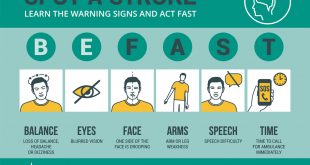

When the heart works harder than necessary, this extra stress can cause damage to blood vessels and lead to cardiovascular disease (CVD). CVD is responsible for 800,000 deaths annually and, consequently, is the leading cause of all deaths in the United States. CVD is also responsible for one out of every 5 smoking-related deaths.2
In addition to causing damage to the heart and blood vessels directly, cigarette smoke can also cause CVD by changing the blood’s chemistry, which results in thickened blood and plaque build-up in the walls of arteries. When this happens, it becomes difficult for blood to flow through the arteries and for blood vessels to get to the vital organs, such as your heart or brain, which can result in blood clots and ultimately lead to a heart attack or stroke.1
The best way to protect your heart from smoking-related disease and death is to never start using cigarettes; but if you are smoker, the earlier you quit, the better. Quitting smoking benefits your heart and your cardiovascular system now and in the future:
• Twenty minutes after you quit smoking, your heart rate drops.
• Just 12 hours after quitting smoking, the carbon monoxide level in the blood drops to normal, allowing more oxygen to vital organs like your heart.
• Within four years of quitting, your risk of stroke drops to that of lifetime nonsmokers.1
Although quitting smoking is difficult, it is certainly achievable, and cessation aids such as nicotine replacement therapy (NRT) may be able to help you on your quit journey. Many smokers addicted to nicotine find that NRT helps them push through the hardest parts of quitting by lessening cravings and symptoms of withdrawal.1
If you are a smoker and you are concerned about your heart health, contact Gulfcoast South Area Health Education Center (GSAHEC) today! As part of the Tobacco Free Florida AHEC Cessation Program, GSAHEC offers free tobacco cessation sessions that are available to help someone quit all forms of tobacco. These group cessation sessions, held virtually and in-person, provide information about the effects of tobacco use, the benefits of quitting, and will assist you with developing your own customized quit plan.
Free nicotine replacement therapy in the form of patches, gum or lozenges (if medically appropriate for those 18 years of age or older, while supplies last) are provided with the session. Attendees will also receive a participant workbook, quit kit materials, and follow up support from a trained tobacco treatment specialist.
Contact us today at 866-534-7909 or visit us at www.gsahec.org to schedule a class or learn more about the program!
Resources:
1 Products, C. for T. (n.d.). How Smoking Affects Heart Health. U.S. Food and Drug Administration.
https://www.fda.gov/tobacco-products/health-information/how-smoking-affects-heart-health.
2 Smoking and Cardiovascular Disease. Johns Hopkins Medicine. (n.d.).
https://www.hopkinsmedicine.org/health/conditions-and-diseases/smoking-and-cardiovascular-disease.
 Southwest Florida's Health and Wellness Magazine Health and Wellness Articles
Southwest Florida's Health and Wellness Magazine Health and Wellness Articles

